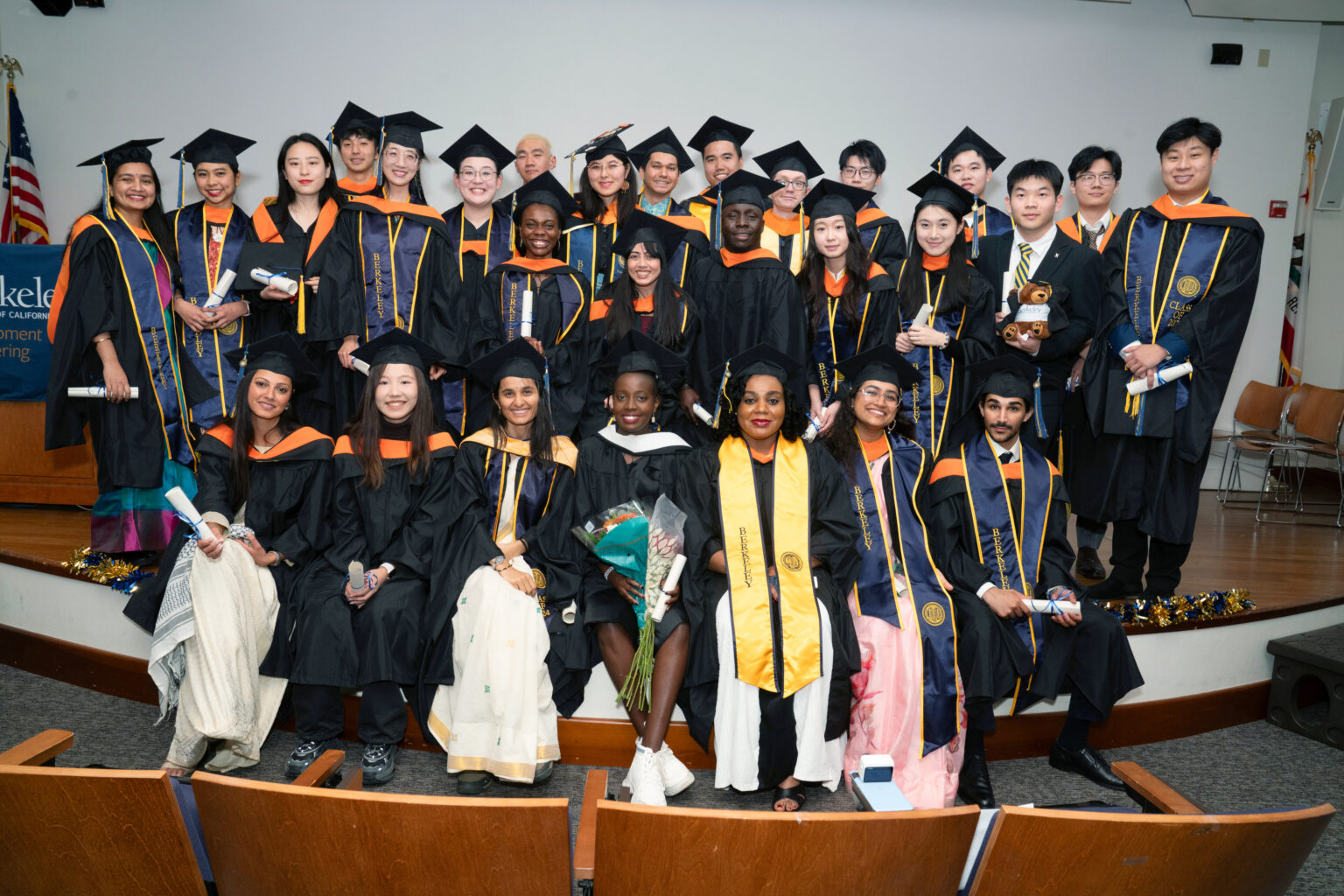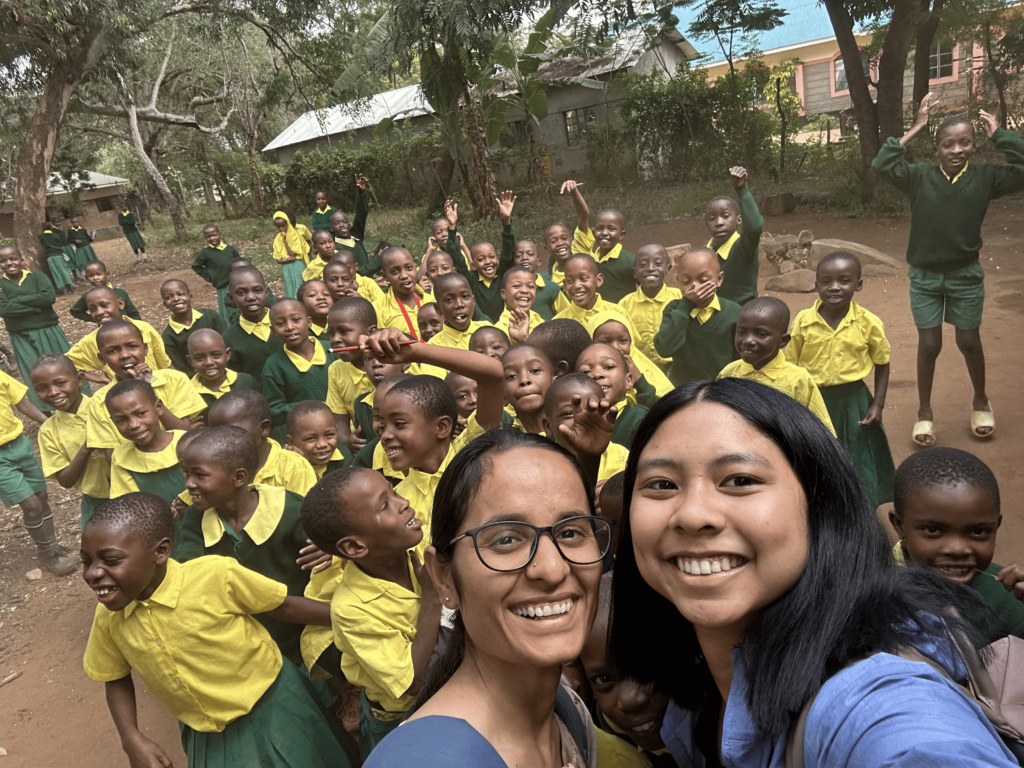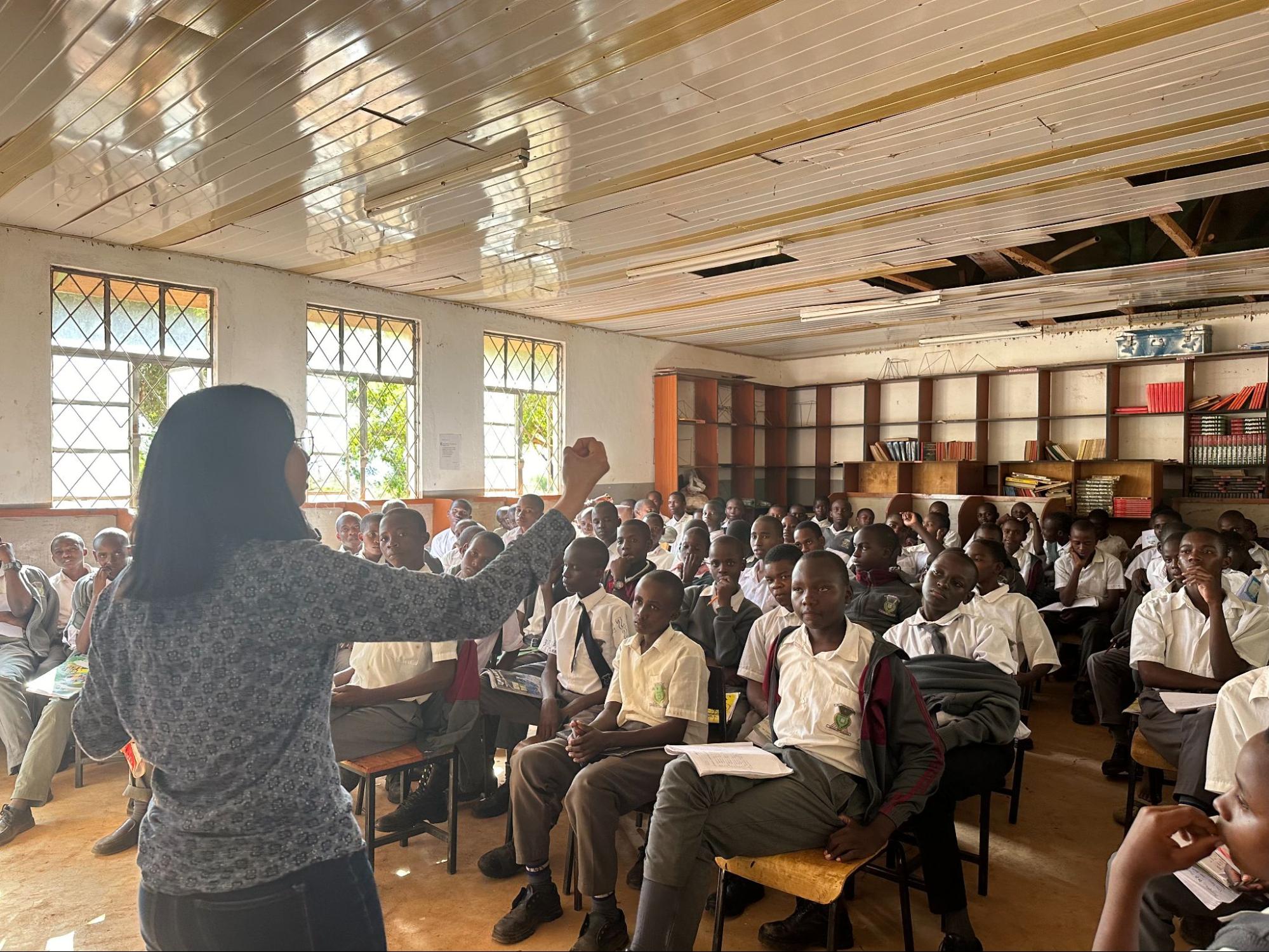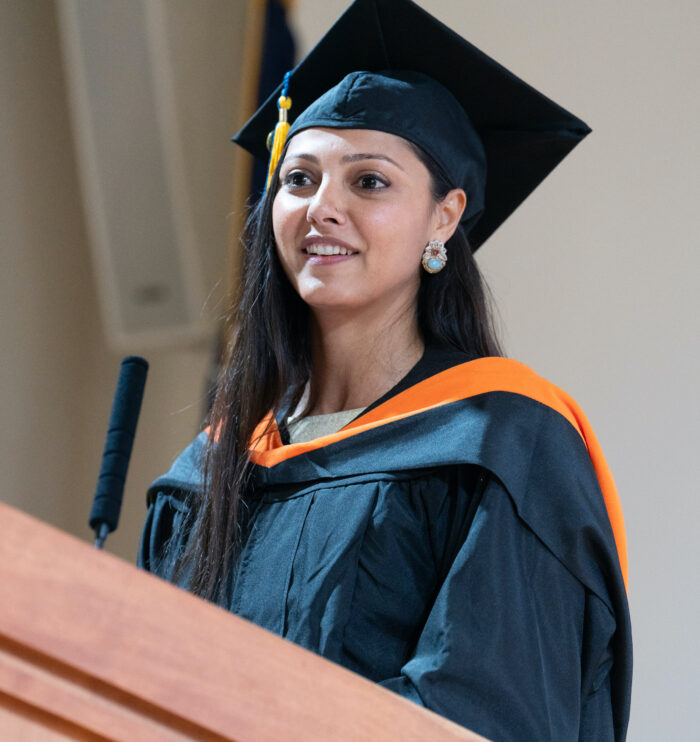
Tilti Thind didn’t make the decision to become a changemaker overnight — it was a journey years in the making.
During the pandemic, she was among the pilots leading India’s Vande Bharat Mission evacuation flights, bringing citizens back from across the Middle East — mostly migrant workers trapped in exploitative conditions. But upon returning home, she saw similar images of suffering: India’s own migrant workers, left jobless by the lockdown, walking for days along highways to reach home.
The sight ignited something that had been brewing in her. After 13 years of flying planes, she decided to step away from aviation, despite the whispers of friends and family questioning her “madness.” With a newfound desire to unravel the systemic roots of inequality, she set out in search of pathways to justice, dignity, and development.
This passion set her on the path to becoming a Development Engineer, and she shared this snippet of her path to Berkeley with classmates and their families during the commencement ceremony for the Master of Development Engineering program’s Class of 2024 — the third-ever cohort of a world-class degree program
“As I look out at the graduating class of Development Engineers, I realize that I have found that familiar ‘madness’ that I now identify as passion, hope, and idealism,” Thind said during her graduation speech. “This is what I see as the fuel for the field of Development Engineering — the community of practice”
MDevEng students combine engineering, economics, business, policy, and social sciences to prepare for careers focused on social impact and sustainability. The program demands rigorous courses, a summer internship, and a capstone design project, equipping students with both the technical skills and theoretical knowledge needed to drive meaningful change. The 2024 cohort’s 31 students came from 11 different countries.
At Berkeley, Thind became a Big Ideas finalist for Narmadaई, a project that partners with communities displaced by India’s Sardar Sarovar Dam. Her capstone project explored the politics of Mumbai’s Salt Pan lands, examining how colonialism, political power, and migration shape the freedom of landscapes.
“It’s the dreams, the challenges, the excitement, the tears, the immense sacrifices, and the collective values that made us gravitate to a program disrupting the way development and engineering are practiced,” Thind said, referring to her peers’ urge to effect change in the bold, transformative spirit of Berkeley, an institution known for leading radical change.
Among this graduating cohort, many students were similarly driven by a shared commitment to creating transformative social change in their own communities, including fellow student speaker Excellence Joshua.
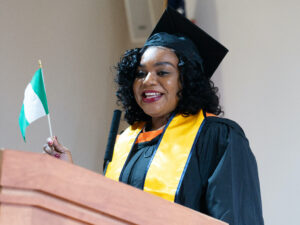
Before Berkeley, Joshua founded Techy Train Incubator, a nonprofit dedicated to equipping African women with tech skills and connecting them to global opportunities. Since its inception, the organization has trained over 10,000 women across 35 countries, with more than 3,500 now outsourcing their talents on a global scale.
In her commencement speech, she reflected on initial worries about adapting to a new culture, managing the demands of a rigorous program, and on top of it all, raising her son as a single mother. However, she shared that the experience ultimately taught her that challenges are “stepping stones” for pursuing dreams.
“I felt like my dreams were too big for someone like me, but coming here to Berkeley reminded me that this was the very reason to dream even bigger,” Joshua said. “We are more than graduates: We are dreamers, we are creators, and leaders committed to building a future where equity, innovation, and change are tangible.”
At Berkeley, her capstone project focused on healthcare policy and helped to identify gaps in menopause care for women in the US and beyond. She concluded her speech by expressing gratitude to her peers for their support, contributions, and friendship throughout their 16 months in the program.
“I dare to say, I studied with the best minds,” Joshua said. “You challenged me and constantly reminded me that I wasn’t alone — all the friends who made late night deadlines a little more bearable with laughter and friendship.”
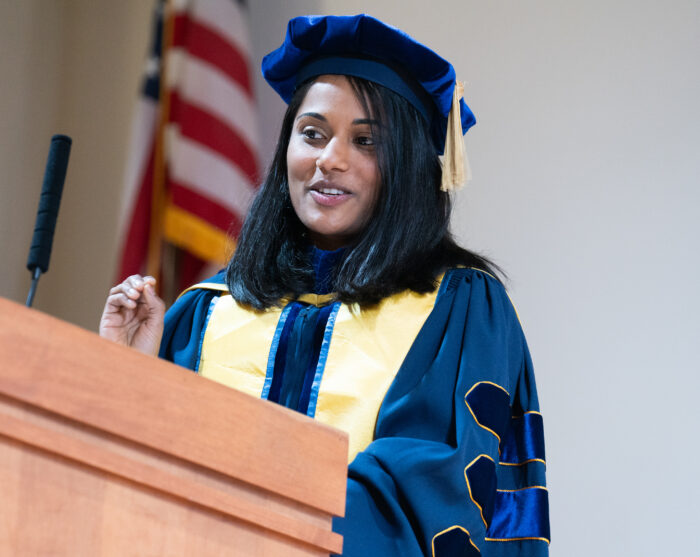
The ceremony concluded with keynote speaker Katya Cherukumilli, an assistant professor at the University of Washington’s Department of Human-Centered Design and Engineering. A longtime member of the Blum Center community, she completed the Global Poverty & Practice minor in 2012 and earned her PhD with a designated emphasis in Development Engineering.
After sharing her own experiences in the DevEng program, Cherukumilli encouraged the cohort to tackle global challenges with confidence, even in the face of a rapidly changing world. Acknowledging the uncertainties ahead, she left graduates with a powerful message.
“To do work in the real world is both tough and rewarding at the same time, requiring you to develop grit, empathy, respect, humility, and patience,” Cherukumilli said. “I would encourage you to believe in yourself and never give up. Ever.”

